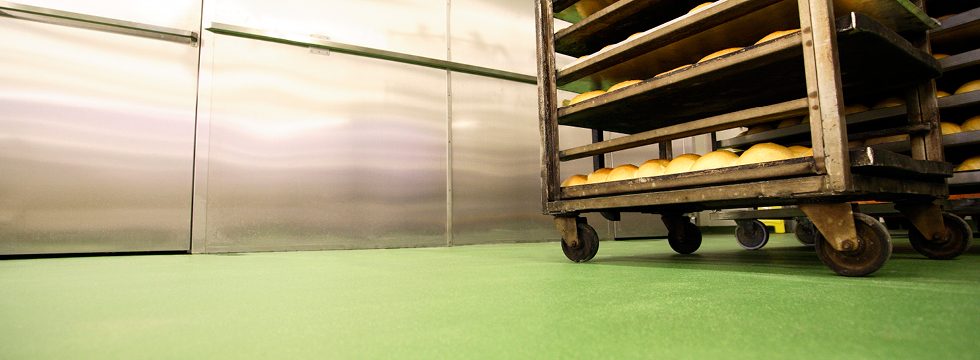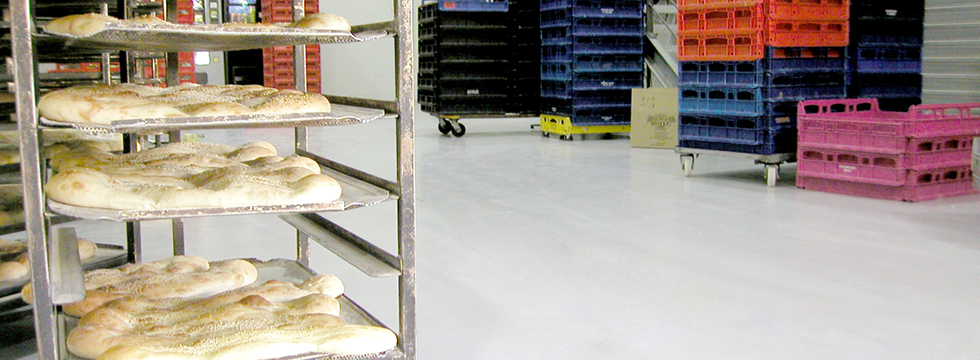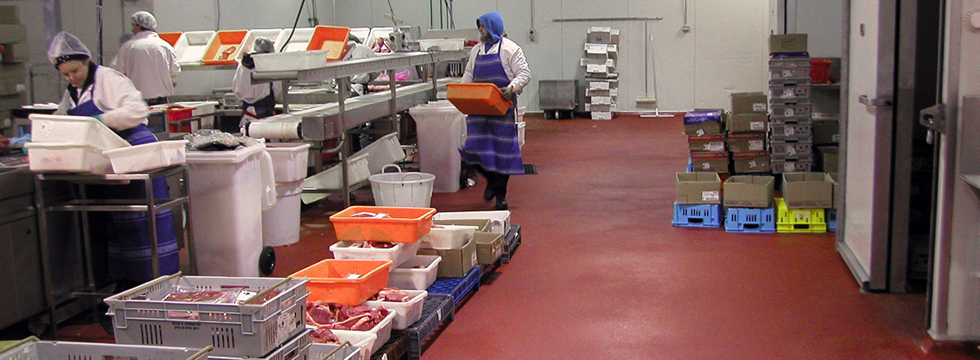Extreme Temperatures
The floor area can be very sensitive to changes in temperature, whether its excessively high, icily low, very sudden or over a long period of time.
Thermal shock for example can quickly cause a floor finish to crack, this often occurs when floors are exposed to heat above 100°C or when subjected to cold environments below -25°C.
Thick, polyurethane floor finishes are able are highly effective at resisting thermal shock, for example a system such as Flowfresh SR in a 9 mm thick layer will provide an effective barrier against the majority of extreme temperature situations.
This temperature resistance extends to avoiding failures from thermal cycling, when the floor’s temperature is gradually raised or lowered over time. Polyurethane’s thermal coefficient of expansion is similar to concrete, which means that the finish will expand and contract at the same rate as the substrate. Failing to move with the underlying concrete could lead to cracks, debonding, delamination or bubbling.
Recommended Systems
Flowcrete Australia recommends the following systems when thermal shock resistance is a key flooring requirement...






